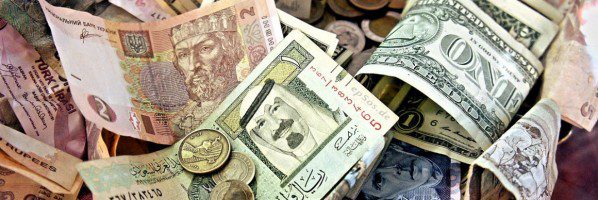Choosing Between the GRE and GMAT

GRE and GMAT: Which One to Take?
As you begin to explore an MBA education, the question of whether to take the GRE or GMAT may soon arise. While the GMAT has traditionally been the test that MBA applicants take, more and more top graduate business programs are starting to accept the GRE as well. Ultimately, accepting both tests gives the schools a larger pool of applicants, allowing them to be more selective in terms of which students they accept into their programs.
Center for Asian Business Helps Students Study in Asia

The Center for Asian Business at Loyola Marymount University organized two international business courses for students at the LMU business school, according to a press release from the school. “Global Sustainability: Challenges and Prospects in Asia” and “Exploring Asian Culture” both gave students an opportunity to travel to and learn about South Korea, Japan, and China. Continue reading…
SFSU College of Business Professor Co-Authors Article on Career Disasters

San Francisco State University College of Business Professor of Management Mitchell Marks co-authored an article about how people respond to career disasters, according to a press release from the school. The article appeared on June 18 in the Harvard Business Review. The article was also co-authored by Phillip Mirvis, organizational leader and senior fellow at Boston College’s Center for Corporate Citizenship and Ron Ashkenas, managing partner of Schaffer Consulting.
The authors worked with Tim Hall, a leading expert in careers at Boston University’s Questrom School of Business, to analyze data about how managers said they recovered from career disasters. They identified three distinct patterns that emerged when people responded to career disasters. Some stewed over their loss and got lost in an endless cycle of self-justification. Others attempted to work through their setbacks but struggled to adapt to the new realities they faced. Almost half of respondents focused on learning from their loss through “identity work,” where one thinks about the role they play, sought advice and opinions from others, and took steps to care for themselves. The last group was most successful in moving past their career disaster.
While the other groups suffered from their inability to accept responsibility or dwelling on past failures, those who learned from their loss benefited from a new outlook on their life and career. Adaptability was one facet of a manager’s recovery. Seeking out peers’ opinions and reflecting upon their own actions led these managers see how they could have done better and improve upon it in the future. Another important part of recovery was evaluating your “self-system,” or your self-image in relation to their environment. Careful thought and reflection in both these categories led managers to success moving on with their careers and ultimately viewing their career disaster as a positive step forward.
Economic Science Institute Hosts 2015 IFREE Summer Scholars

The Economic Science Institute (ESI) hosted eight undergraduate and graduate students to participate as IFREE Summer Scholars, according to a press release. The ESI is part of Chapman University, home of the Argyros School of Business. The program, which lasted for five weeks, was sponsored by the International Foundation for Research in Experimental Economics (IFREE) and the Thomas W. Smith Foundation. The selected students gained firsthand experience to explore and advance their knowledge and understanding of economics research, history, and philosophy. Continue reading…
Saïd Announces Equity Crowdfunding Study

Saïd announced in a recent press release that Associate Professor of Business Economics Nir Vulkan has been granted funding from the Kauffman Foundation so that he may study equity crowdfunding, a process where a broad group of investors will put their money behind a startup in return for equity. This industry is worth over £50 million in the UK alone, although very little research has been done into the market dynamics, success of campaigns to attract money and risks associated with the investment. Continue reading…
